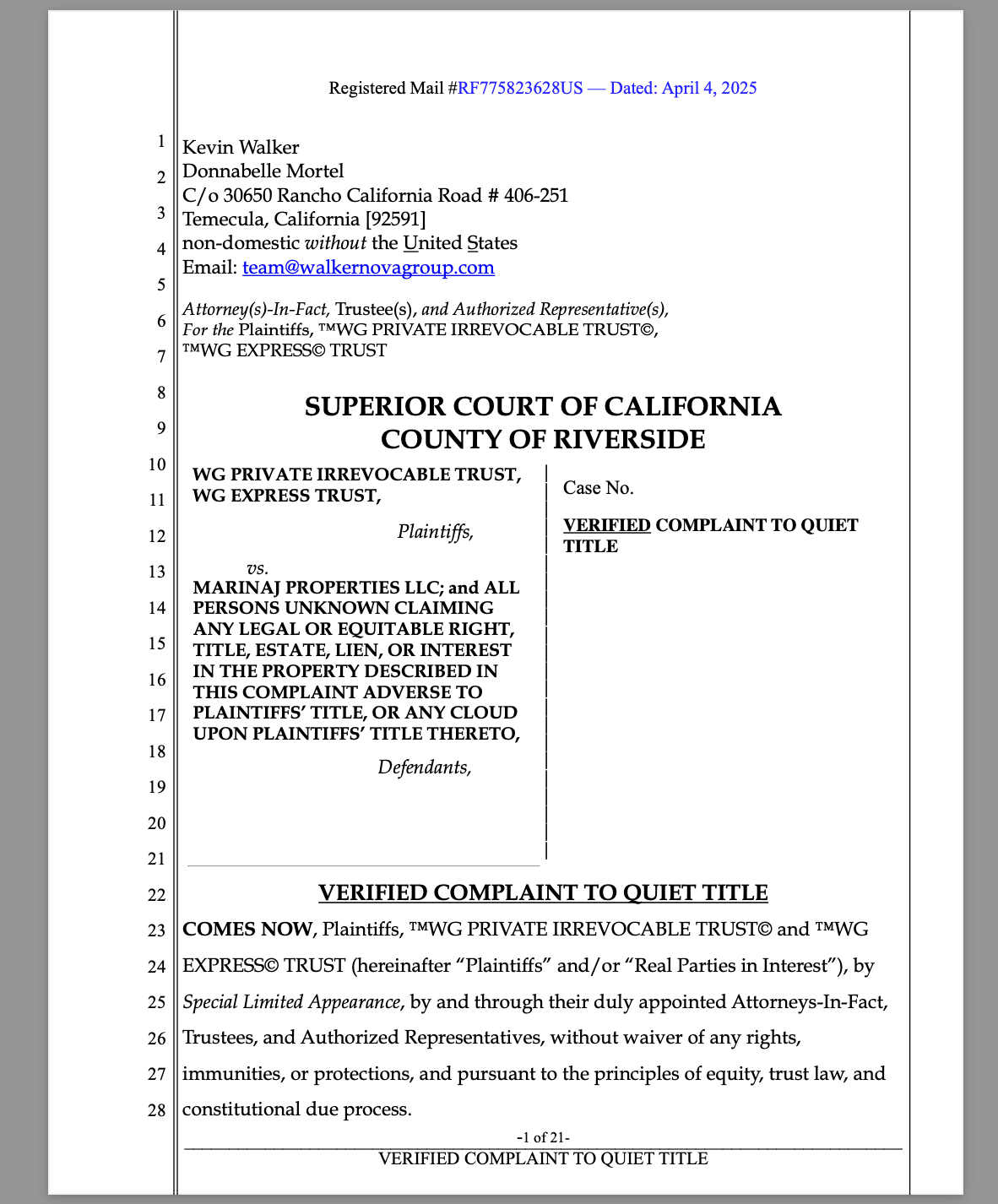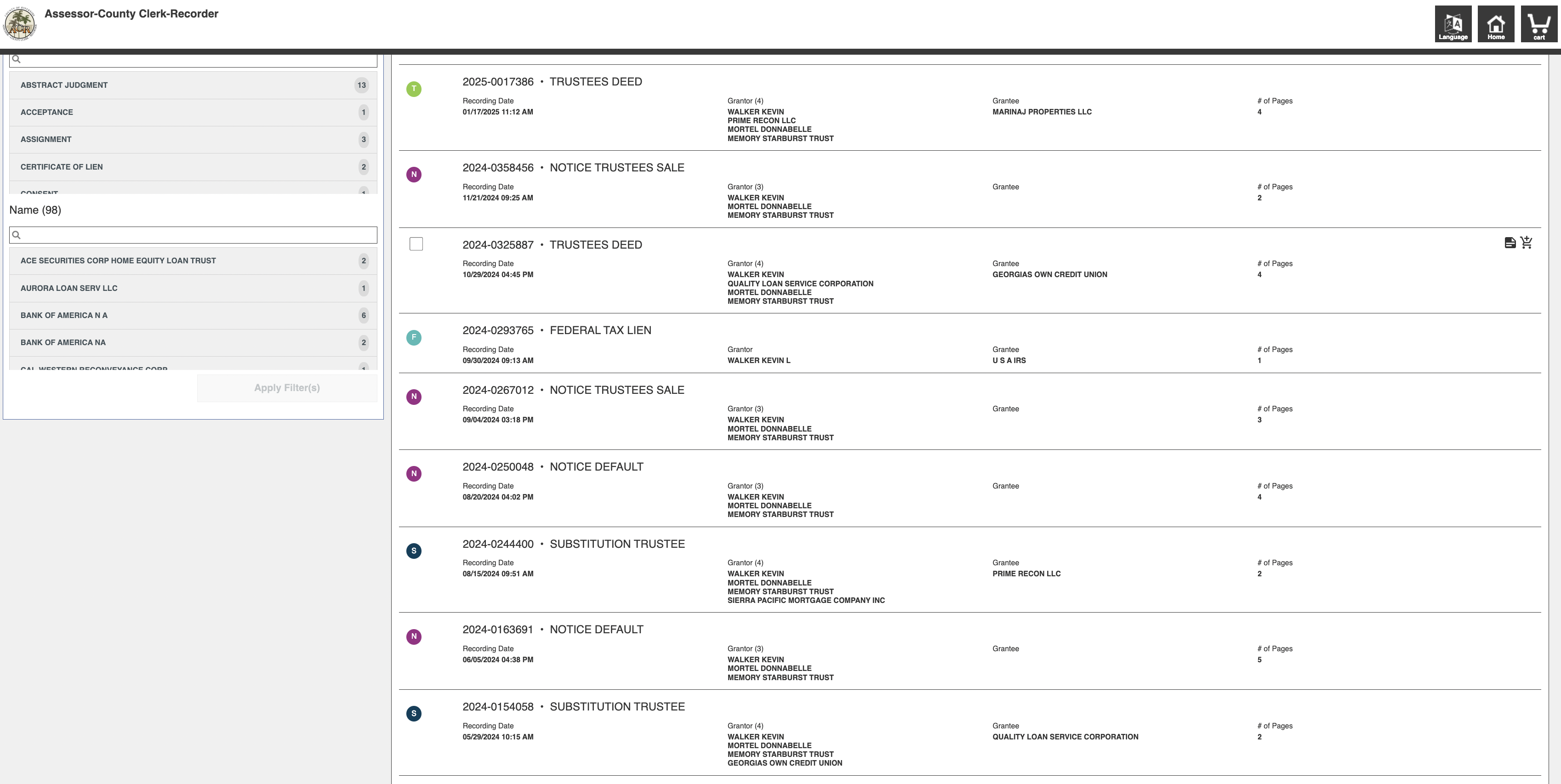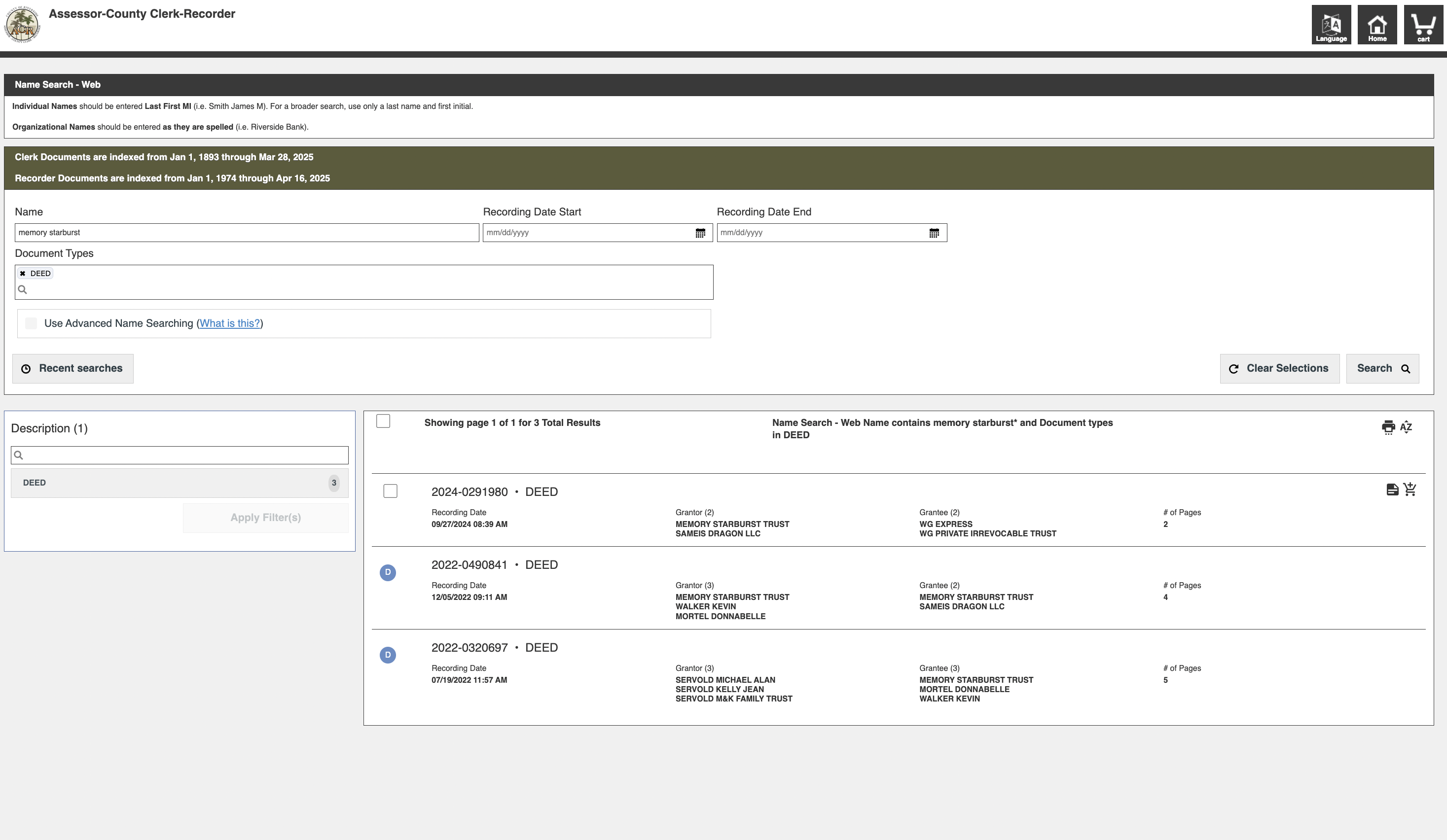Zillow has positioned itself as the dominant force in digital real estate while quietly orchestrating one of the most far-reaching forms of informational fraud in the property sector. It operates as a de facto monopoly, misrepresents key ownership records, and conceals critical title documents in its misleading “property reports.”
Zillow’s Stranglehold on Property Information
Zillow commands an overwhelming share of online real estate traffic in the United States. It harvests and aggregates data from MLS listings, county records, and third-party vendors. Because:
- Over 70% of home searches begin on Zillow or one of its subsidiaries (Trulia, StreetEasy, etc.),
- Realtors are compelled to submit listings and cooperate within Zillow’s monetized framework,
- Zillow selectively manipulates what data is shown to influence market perception,
…it has become a centralized gatekeeper of what the public believes is authoritative property information. This is classic monopoly behavior that distorts free market access to land and ownership records.
Fraud by Omission: A Digital Shell Game
Zillow’s “property reports” are not what they appear. Rather than providing full legal transparency, they engage in strategic omission of public record evidence.
❌ What Zillow Highlights:
- Deeds of Trust (lien instruments)
- Trustee’s Deed Upon Sale (foreclosure instruments)
✅ What Zillow Intentionally Hides:
- Grant Deeds – the actual legal conveyance of title
- Warranty Deeds – the document guaranteeing clean ownership
- Quiet Title Judgments – legal declarations that override competing claims
- UCC-1 Financing Statements – commercial liens asserting superior equity claims
This creates a deliberately false impression that foreclosure sales represent lawful title transfers, when in reality, superior claims or prior conveyances often exist that invalidate those transactions.
This constitutes:
- Fraud by omission – Zillow fails to display essential legal documents.
- Constructive fraud – the platform deceives by design, not error.
- False advertising – it markets incomplete and misleading property profiles as authoritative.
Public Records Expose Fraud and Title Suppression
Recent public records show that MEMORY STARBURST TRUST lawfully conveyed title to SAMEIS DRAGON LLC, which was then transferred to WG EXPRESS and finally conveyed to WG PRIVATE IRREVOCABLE TRUST — all through duly recorded and verifiable grant deeds.
Despite this, Riverside County Assessor’s Office and the State of California have refused to recognize or reflect these conveyances in official reports or assessments, pretending as though the transfers never occurred. This suppression amounts to an intentional deprivation of rights under color of law, facilitating:
- Fraudulent foreclosure filings,
- Constructive theft of title,
- And blatant violations of due process.
Zillow’s “property report” for this very parcel conveniently omits the grant deeds and private conveyances in favor of publishing only the Trustee’s Deed Upon Sale, giving the false appearance of legitimate title transfer by foreclosure — despite the superior chain of title held through private trust conveyance.
This is not accidental. It is a coordinated strategy to marginalize private trusts, erase equitable title, and reinforce the appearance of lender authority.

Zillow, Title Fraud, and the Engineered Dispossession of Private Property
Monopolistic Abuse and Institutional Collusion
Zillow’s platform is not neutral — it is built to serve institutional interests and generate ad revenue, not truth:
- It sells premium placement to agents, distorting representation.
- It refuses to correct false foreclosure or title data, even after receiving legal affidavits and updated filings.
- It enables mortgage “servicers”, trustees, and institutional buyers to benefit from false narratives about who owns what.
Such conduct qualifies as:
- Unfair competition under federal and state law (e.g., FTC Act, Cal. Bus. & Prof. Code § 17200),
- Commercial fraud and deceptive trade practice,
- Tortious interference with lawful ownership, title, and trust-based conveyances.

Conclusion: A Silent Engine of Dispossession
Zillow has weaponized its monopoly over real estate data to perpetrate one of the most insidious forms of fraud in modern commerce. By hiding true title instruments, including Grant Deeds, Warranty Deeds, and equity liens, Zillow creates the illusion of default and foreclosure legitimacy — when in fact, lawful owners may still hold superior title.
This is not an oversight. It is an orchestrated system of fraudulent concealment, commercial dishonor, and calculated collusion, now visibly propped up by county-level complicity and systemic suppression. Until held accountable, Zillow will continue to operate as a private cartel masking as a public utility, eroding property rights and undermining the rule of law one “property report” at a time.






